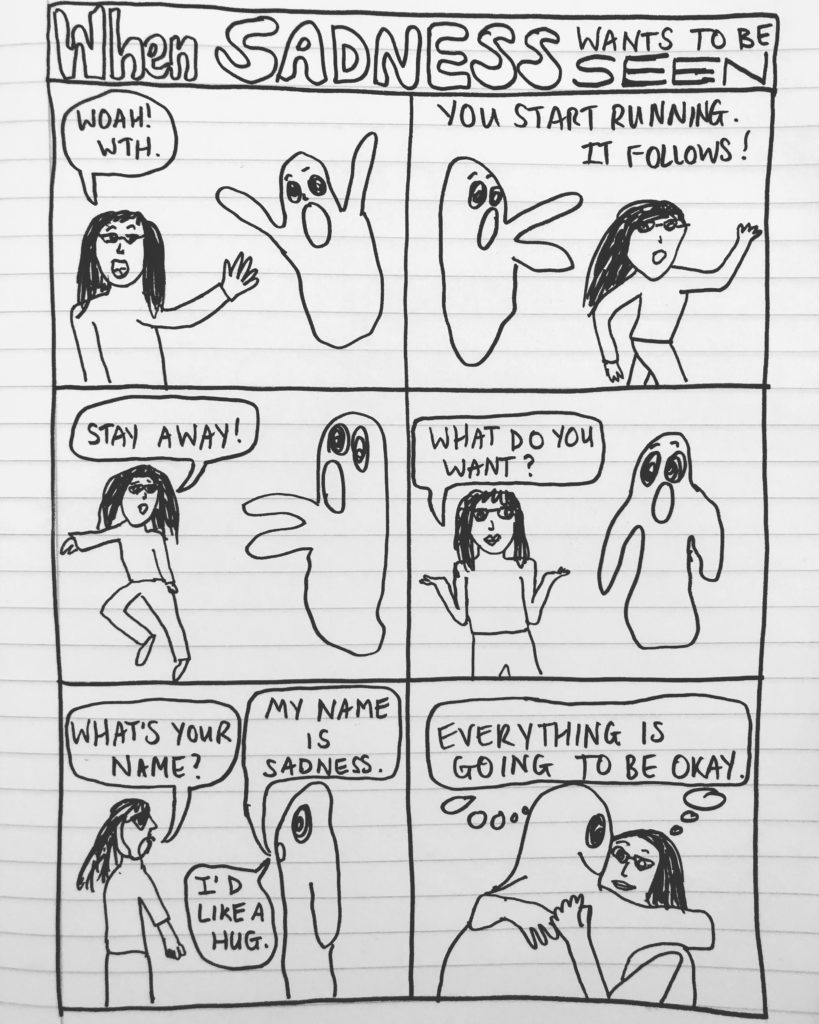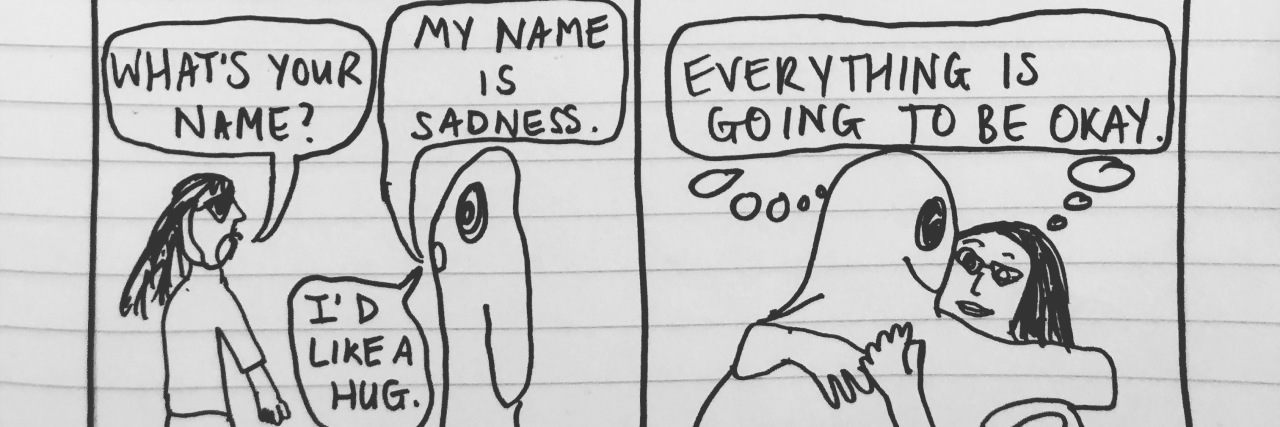This morning, I drew a comic to illustrate how my resistance to sadness often perpetuates the constant and terrifying feeling of being bound by it: of it haunting my days and nights.
If you are busy putting your energy into avoiding sadness, then it will run your life. But if you stop and look at it and acknowledge its presence, you make peace with it. You can be a friend to every part of yourself. You can experience life without being distracted by your fear of what will arise, and instead, enjoy the moment as it comes.
When I don’t hold space for my feelings, no matter what they are, I am not being present to myself. When I don’t witness my sadness, I suppress a part of my experience. When I censor my experiences, I deny myself the opportunity to grow and learn about myself. Telling myself to not feel something when I do is denying what makes me human.
Holding space for sadness can make me aware of many things. It can tell me whether I’m being triggered by something. It can tell me if I’m not enjoying myself and feel disconnected from where I am or who I’m with. It can indicate a deep dissatisfaction with what I am doing. It can inspire me to make a change.

When I was a child, I was often told to not feel sad even when that was what I was feeling. My parents love me and wanted to protect me. I was told I was “too sensitive.” With messages like these, it is easy to learn to resist the feeling when it comes. Now I am responsible for telling myself these things. I say, “Go away! You’re not a good feeling. I’m not going to see or listen to you. Why am I so sensitive?”
It’s important to know that sadness isn’t a bad feeling. It’s not good or bad. It just is. It’s a temporary, passing feeling. It is not who you are. You feel sadness. You are not sadness. Happiness isn’t better; it just is. If you start judging your feelings, you set yourself up to feel shame when you experience the “bad” ones.
No matter what, you will feel sad at times. To not feel sad when the moment calls for it is to disrespect the moment and yourself. Exercise honoring the parts of yourself that feel sad. For example, when you grieve, you’re likely to feel sad among all the other feelings (like anger or guilt). To hold space for your sadness acknowledges that the loss you have felt is significant and meaningful to you.
“What you resist will persist.” I’ve heard this recently and it really struck me. In the past, I’ve resisted sadness to the point of having a mental breakdown. Then, I was forced to look at my feelings because I had no other choice. I advise that you don’t wait that long to face your feelings.
Meditation and mindfulness has really helped me to learn how to check in with myself and to be aware of my feelings when they come up. It’s not easy, though. I get frustrated at myself for feeling sad and ask myself, “Why can’t I just be happy?”
I’ve carried sadness around with me like a blanket a child gets when they’re young. I’ve suppressed my sadness so I wouldn’t burden anyone. I’ve avoided parts of myself so I could fit in and be likable. I’ve told myself that no one wants to be friends with someone who is sad. Now, I’m realizing that by being vulnerable with others, I share myself in a way that others can relate. If there are people who turn away when you are vulnerable, you can’t worry about them. They’re dealing with their own stuff.
It’s up to you to accept yourself along with your sadness. You can’t wait to be accepted by everyone else because that will never happen. As Buddha says, “No one saves us but ourselves. No one can and no one may. We ourselves must walk the path.” I strive to live this every day.
Image via contributor

